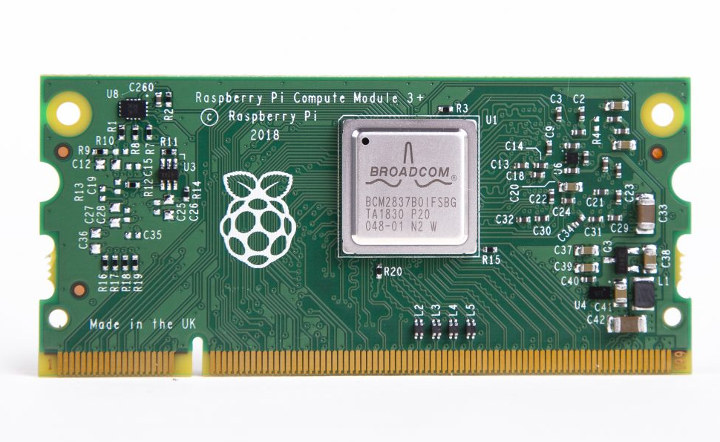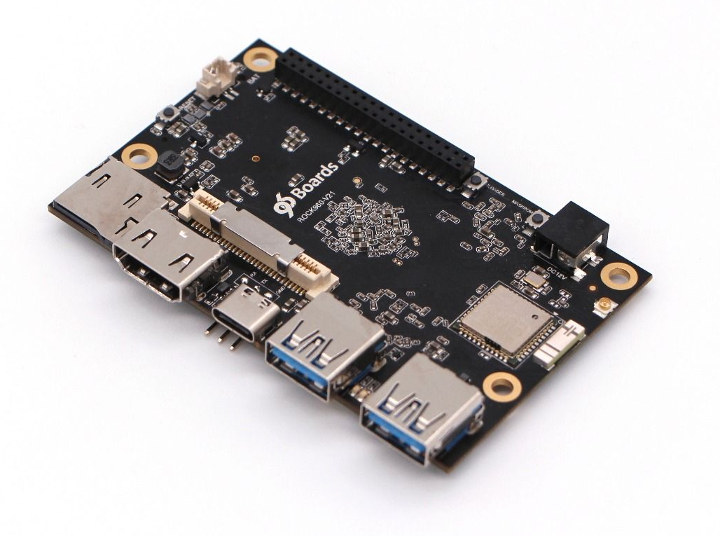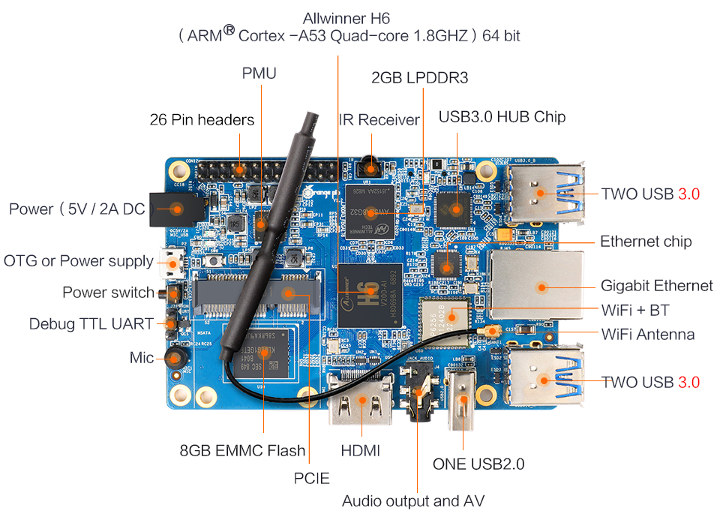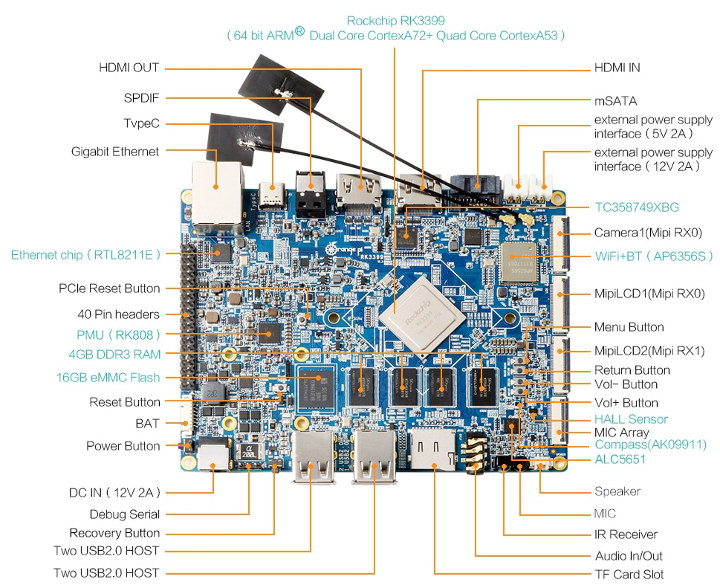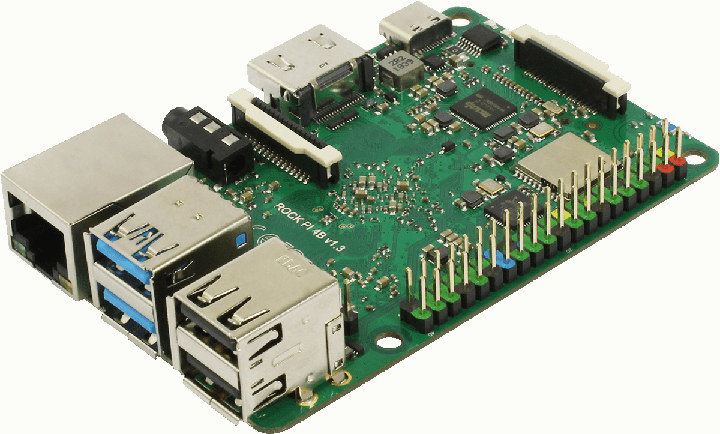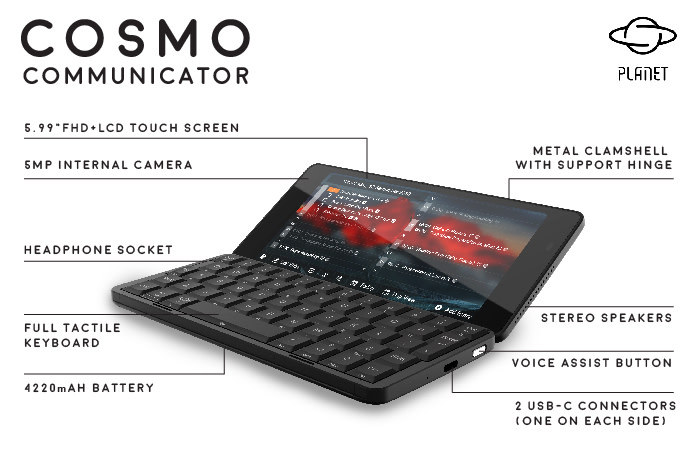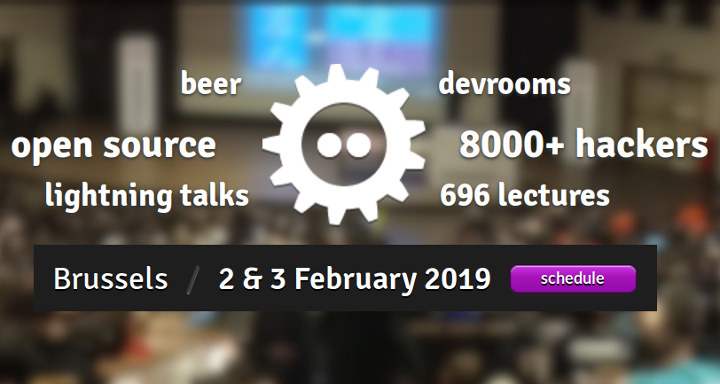Raspberry Pi 3 Compute Modules CM3 and CM3L launched about two years ago based on Broadcom BCM2837 quad core processor found in Raspberry Pi 3 board. Last year, the Raspberry Pi Foundation introduced Raspberry Pi 3B+ board with a slightly faster Broadcom BCM2837B0 processor, Gigabit Ethernet, and WiFi 802.11ac. So it would have made sense for the foundation to provide an upgrade to their CM3 compute modules with Broadcom BCM2837B0 processor, and that’s exactly what they’ve done with the launch of Raspberry Pi Compute Module 3+ for $25 and up. There are four variants of Raspberry Pi Compute Module 3+ with different storage options and sharing the following specifications: SoC – Broadcom BCM2837B0 quad core Cortex A53 processor @ 1.2 GHz with Videocore IV GPU System Memory – 1GB LPDDR2 SDRAM Storage CM3+/Lite – SD card signals through SO-DIMM connector CM3+/8GB – 8GB eMMC flash CM3+/16 GB – 16GB eMMC […]
Cost-Optimized Rock960 Model C Board Sells for $69 and Up
96Boards compliant Rock960 board launched last year for $99 with Rockchip RK3399 processor, 2 to 4GB RAM, 16 to 32GB eMMC flash for $99 and up. However, now you can buy a Rockchip RK3399 SBC for as low as $45 plus shipping thanks to FriendlyElec NanoPi NEO4 board that comes with 1GB RAM and no built-in storage, relying instead on a micro SD card slot or eMMC socket. So VAMRS decided to design a cheaper version of their board with Rock960 model C that still benefits from being part of the 96boards ecosystem, is equipped with 1, 2 or 4GB LPDDR4 RAM, and the OS can boot from a micro SD card or an optional eMMC flash module. The 1GB version of the board is now sold for $69 on Seeed Studio with shipping scheduled for the 1st of February 2019. Rock960 model C preliminary specifications: SoC – Rochchip RK3399 […]
Orange Pi 3 Allwinner H6 SBC Comes with GbE, USB 3.0, mPCIe
When Shenzhen Xunlong Software launched their first Allwinner H6 development board, Orange Pi One Plus, many were disappointed as the board did not make use of some of the key features of H6 processor like USB 3.0 or PCIe, and RAM was limited to 1GB. A couple of weeks later, the company introduced Orange Pi Lite2 board with 802.11ac WiFi, a USB 3.0 port, HDMI 2.0a output, but no Gigabit Ethernet, nor PCIe interface, and again only 1 GB LPDDR3 memory. The good news is we now get a full-featured Allwinner H6 SBC thanks to Orange Pi 3 equipped with up to 2GB RAM, an optional 8GB eMMC flash, Gigabit Ethernet, 802.11ac WiFi 5, four USB 3.0 ports, HDMI 2.0a, a mPCIe slot, and more. There are four variants of the Orange Pi 3 board with either 1 or 2 GB RAM, with or without eMMC flash that share the […]
Orange Pi RK3399 Board Gets 4GB RAM for $100
Orange Pi RK3399 development board launched last year, further crowding the RK3399 space. The board did not target the lower end of the market with a $109 price tag, but still came with only 2GB of RAM. Shenzhen Xunlong has now introduced a 4GB RAM version of the board for $99.96, with the 2GB version now selling for $89.38. Both boards can be purchased on Aliexpress. Apart from the RAM capacity, Orange Pi RK3399 “4G” specifications have not changed: SoC – Rockchip K3399 hexa-core big.LITTLE processor with two ARM Cortex A72 cores up to 2.0 GHz, four Cortex A53 cores, and an ARM Mali-T860 MP4 GPU with support for OpenGL 1.1 to 3.1 support, OpenVG1.1, OpenCL, and DX 11 System Memory – 4 GB DDR3 Storage – 16 GB eMMC flash, micro SD card, mPCIe (for mSATA/LTE), and SATA interface Video Output/Input & Display Interfaces 1x HDMI 2.0 up to […]
Radxa Rock Pi 4 Review – Part 1: A First Look at RockPi 4B Performance Set
Hey, Karl here with another RK3399 board. This one is by Radxa and is called the Rock Pi 4. There are 2 main variants to this board and I was shipped the B version “performance set” which includes a power supply, heatsink, and acrylic case. Also shipped was 16gb eMMC 5.1 module, eMMC flashing board, and USB-TTL debug cable. It looks like the difference is the B version has AC wifi and GbE LAN with PoE support with a hat. The A version only has GbE. Rock Pi 4B Performance Set Unboxing Some of the more notable specs eMMC module support M.2 NVME SSD support (SATA not supported) HDMI 2.0 4k@60htz MIPI DSI 2 lanes via FPC connector 3.5mm audio jack MIPI CSI 2 lanes via FPC connector, support up to 8MP camera 802.11 ac wifi Bluetooth 5.0 40-pin expansion header : 1 x UART 2x SPI bus 2x I2C […]
Cosmo Communicator 2-in-1 Smartphone & Pocket Computer Runs Android 9, Linux
In recent years, we’ve started to see Windows 10 mini laptops with 6″ to 8″ display and a foldable keyboard coming to market thanks to products such as GPD Pocket 2 or One Mix 2 Yoga. They offer a full Windows 10 experience in an ultra-small form factor, but you’d still need to carry your phone around with you for things like calls or SMS. Cosmo Communicator offers a similar experience, but instead of relying on Intel processor and Windows, the device comes with a Mediatek P70 mobile processor capable of running Android 9 Pie or Linux distributions merging phone and mini laptop functionalities into a single device. Cosmo Communicator preliminary specifications: SoC – Mediatek P70 octa-core processor with four Arm Cortex A73 cores @ up to 2.0GHz, four Cortex A53 cores @ up to 2.0GHz, Arm Mali G72 MP3 GPU @ 800MHz, and a Dual-core mobile AI processor (APU) […]
Necunos NC_1 is a Pricey Open Source Linux “Phone” without Modem
Several weeks ago, I wrote about the upcoming “Necuno Mobile” phone made by a company called Necunos and running Linux on NXP i.MX6 Quad processor. The phone was supposed to be 100% open source hardware which all software and hardware resources to be made available publicly. There has been progress since then, as well as a name change since Necunos NC_1 is now up for pre-order for 1,199 Euros including VAT and international shipping with delivery promised in March 2019. Necunos NC_1 specifications are said to include: SoC – NXP i.MX 6Quad quad-core Arm Cortex-A9 processor with Vivante GPU System Memory – 1GB RAM Storage – 8 GB storage Display – 5″ touchscreen (attached or detached) Audio – 3.5mm audio jack, built-in microphone, and speaker Connectivity – 2.4 GHz 802.11 b/g/n WiFi Misc – Power, volume, and user programmable buttons USB – 1x micro USB port Battery – 3,500 mAh […]
FOSDEM 2019 Open Source Developers Meeting Schedule
FOSDEM – which stands for Free and Open Source Software Developers’ European Meeting – is a free-to-participate event where developers meet on the first week-end of February to discuss open source software & hardware projects. FOSDEM 2019 will take place on February 2 & 3, and the schedule has already been published with 671 speakers scheduled to speak in 711 events themselves sorted in 62 tracks. Like every year, I’ll create a virtual schedule based on some of the sessions most relevant to this blog in tracks such as open hardware, open media, RISC-V, and hardware enablement tracks. February 2 10:30 – 10:55 – VkRunner: a Vulkan shader test tool by Neil Roberts A presentation of VkRunner which is a tool to help test the compiler in your Vulkan driver using simple high-level scripts. Perhaps the largest part of developing a modern graphics driver revolves around getting the compiler to […]


